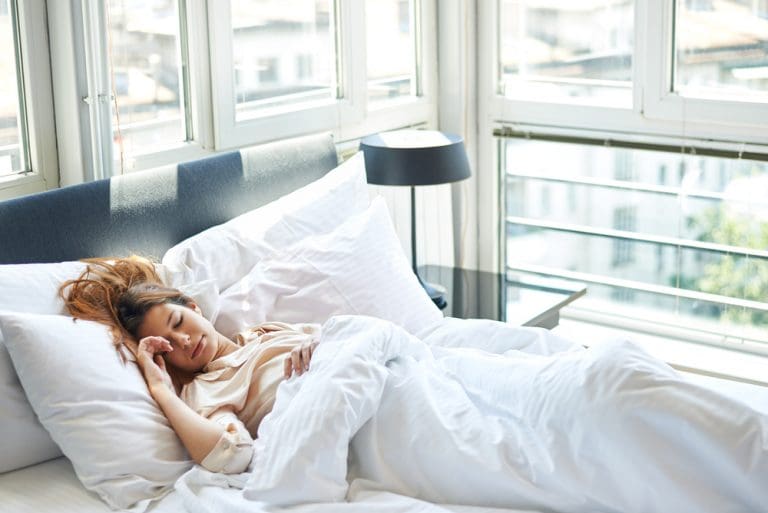A new trend on TikTok, dubbed “bed rotting,” has sparked both curiosity and concern among health professionals and social media users. The term refers to spending extended periods of time in bed, not just for sleep but for relaxation, eating, and even social media scrolling. While some argue that this practice can be a form of self-care and recovery, especially for those dealing with stress or burnout, others warn of its potential negative effects on physical and mental health.
“Bed rotting” has become a popular topic on TikTok, where users share videos of themselves indulging in prolonged bed rest, often accompanied by hashtags like #bedrotting and #stayinbed. The videos, which sometimes include people eating snacks, watching TV, or simply lounging, suggest that taking a break from daily activities and responsibilities can be a way to recharge and reset. Advocates of the trend argue that it allows them to listen to their bodies and prioritize rest, especially in a fast-paced, always-on culture.
One TikTok user described her experience with bed rotting as a necessary break from the pressures of daily life. “Sometimes, I just need a day to do nothing and stay in bed. It helps me feel better and gives me the energy to tackle my tasks later,” she said in her video. Many others echo this sentiment, seeing it as a way to practice self-care and combat feelings of overwhelm.
However, health experts caution that while occasional rest is beneficial, excessive bed rest can lead to various health issues. Dr. Sarah Jarvis, a general practitioner, points out that spending too much time in bed can disrupt sleep patterns, reduce physical activity levels, and lead to muscle atrophy. “Our bodies are designed for movement, and extended periods of inactivity can lead to a range of health problems, including weakened muscles and joints, and increased risk of cardiovascular issues,” she explains.
Mental health professionals also express concerns about the potential psychological impact of prolonged bed rest. Dr. Jessica Nguyen, a clinical psychologist, warns that staying in bed for extended periods can exacerbate symptoms of depression and anxiety. “While it might feel comforting in the short term, overindulging in bed rest can lead to feelings of isolation and decreased motivation, making it harder to engage in activities that support mental well-being,” she says.
The trend has sparked a debate about the balance between self-care and maintaining a healthy lifestyle. Critics argue that while the idea of taking a break is valid, it should not come at the cost of overall health. Instead, they advocate for finding ways to rest and recharge that also promote physical activity and social interaction.
For those interested in practicing “bed rotting” as a form of self-care, experts suggest setting boundaries to ensure it doesn’t negatively impact their health. This might include limiting the time spent in bed, integrating light physical activities or stretching, and making sure to maintain a regular sleep schedule. It’s also important to recognize when bed rest is a sign of underlying mental health issues and to seek professional help if needed.
As with many trends on social media, “bed rotting” reflects a broader conversation about how we cope with stress and take care of our well-being in a demanding world. While there is no one-size-fits-all answer, finding a balance that works for individual needs and promotes overall health is key. As this trend continues to gain traction, it highlights the ongoing quest for ways to navigate the pressures of modern life and prioritize self-care in a healthy and sustainable way.




